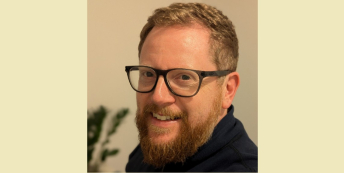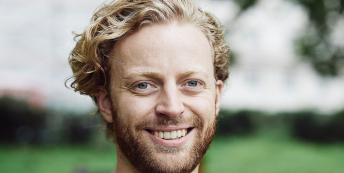“I didn't want to be the people 10 years ahead of me; their work seemed unfulfilling and irrelevant.”

What work were you doing previously?
I worked as a trainee solicitor at a firm in the City.
What are you doing now?
I am Head of Office for David Lammy MP in Westminster. I’m also an elected Labour councillor in the London Borough of Waltham Forest, where I'm the Cabinet member in charge of economic development.
Why did you change?
When I looked at the working lives of people ten years ahead of me, I realised I definitely didn’t want to be them, because the work they did seemed unfulfilling and, often, irrelevant.
When was the moment you decided to make the change?
I studied law at university because, at that time, I wanted to be a lawyer. However, looking back on it, it's clear that I knew what I really wanted to do before even starting my training contract. I think I never thought long and hard about what being a City solicitor would actually entail, day on day, until I was already committed to it. And I was financially committed to completing the contract as, otherwise, I would have had to pay back training and other fees. However, with hindsight, I'm glad I completed my training. I think a large part of my decision to change came about because I matured and became more confident in my decisions. Taking the road less travelled is often the more difficult decision but, even though my career change was a deviation from the "normal" route, I knew it was the right one.
Are you happy with the change?
Yes, absolutely. It's the easiest decision I ever made.
What do you miss and what don't you miss?
I can honestly say that there is nothing that I miss! I certainly don't miss the complete lack of autonomy and pointlessness many of the tasks I did.
How did you go about making the shift?
I've always been interested in politics and joined the Fabian Society and Labour Party before starting my training contract, so I was already working for them in a voluntary capacity. In the last few months of my training contract, I told the firm I didn't want to be considered for any jobs on qualification. I left without a job to go to (not that I'd necessarily recommend this to everyone!). I left in mid-September 2006 and was fortunate enough to be offered a job with the United Nations Association, which I started at the end of October.
How did you handle your finances to make your change possible?
I knew I was leaving in advance, so managed to put some money aside before I got away.
Because I knew so early on that working as a City lawyer wasn't for me, I had a relatively long time to plan my exit. In the end, I was without work for only six or seven weeks so, thankfully, money wasn't much of an issue. Because my former job was also relatively well-paid, I had also managed to accumulate some savings.
What was the most difficult thing about changing?
One difficult thing about changing career was the sinking feeling that what you've done already is a complete waste of time. In retrospect, I now know that this isn't correct. At 26, I was at same level as people who were coming into politics at 21 or 22 but, on the other hand, I had more work and life experience than they did. You just have to put this feeling to the back of your mind and get on with it!
The other difficult thing was that law is such a regimented, well-trodden career path; all the stages are mapped out for you. I found it a bit difficult suddenly to enter a world with no clear career trajectory but, ultimately, that's one of the things that I like most about working in politics.
What help did you get?
None officially, though I knew friends of friends who were doing what I wanted to do, so I met with them. In my last few weeks working for the firm, I remember having many coffees and drinks with those people. I was fortunate in that my friends put me in touch with other helpful contacts.
What have you learnt in the process?
That I was definitely not alone. I knew many people who chose traditional professional career paths for the best of motives, but their hearts weren't really in it. I learned that you should never be afraid to cast your net wider than the traditional sources of information. Nowadays, well-educated people have to be willing to change jobs quite frequently. When I was going through the process of leaving law, I assumed that my experience was unique, but it definitely wasn't. It's useful to remember that many people change careers and having several different jobs on your CV doesn't have the stigma it used to. Changing jobs every 2 to 3 years is more accepted now than in the days of a "job for life".
What do you wish you'd done differently?
I wish I'd really examined all my options before taking the first job that came along. The analogy I’d use is that it's a bit like an exam; often our first instinct is to write instead of sitting back and thinking before putting pen to paper. I wish I'd given myself a bit more breathing space.
What would you advise others to do in the same situation?
If you can afford to, definitely leave a job you hate! Sure, you can stay on and keep the money, but spending two hours a day revising your CV and looking at jobs at work is never going to be as productive as leaving and spending eight or nine hours a day doing these things. Also, staying in a role you detest can leave you feeling really jaded about work in general. Wipe the slate clean and focus on what you really want to be doing.
What resources would you recommend to others?
Word of mouth worked best for me, but I had a clear idea of the area I wanted to move into. The position may be slightly different for people who aren't so sure about their next move. However, I would say: badger people. Email them and ask them to meet for twenty minutes for a coffee. I spent a whole day googling think tanks and looking for possible contacts; then I sent emails to a hundred people. And that was one of the most productive days I spent. After all, if you don’t ask, you don't get!
What lessons could you take from Mark's story to use in your own career change? Let us know in the comments below.



